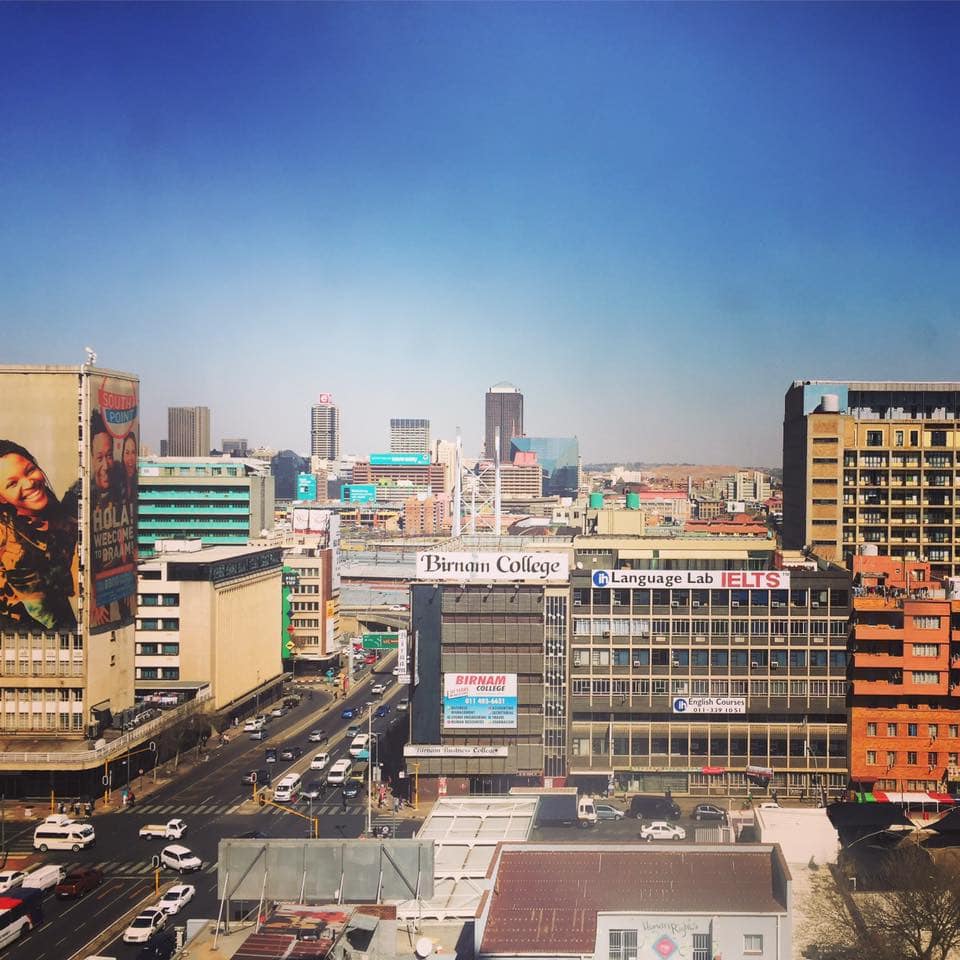By Hannah Clifford, Program Manager
It was 5:30 in the morning and we had just hit submit. The application was finally in. JHR had been fortunate enough to be shortlisted for funding for a pilot program in South Africa and we had finished the application in the nick of time. The tiredness I was feeling was secondary to the excitement that now overwhelmed me, not only because the docs were in but, because in a mere 14 hours I was on my way to South Africa itself.
As I boarded the plane, I had many questions running through my mind. Would our collaborative training approach work? How would we be received? Did I bring the right power adapter?
The trip started with a presentation at the Menell Media Exchange, a conference put on by Duke University. I took the floor for an hour long workshop on JHR’s track record in Africa and entrepreneurial journalism with the superb Asmaa Malik, who teaches entrepreneurial journalism at Ryerson University in Toronto. The room was filled with a mix of journalists, editors, representatives from civil society organizations, members of the public and students. There were a few laughs as we presented, which was a good sign — the jet lag hadn’t entirely inhibited our ability to speak coherent English.
We were met with thought provoking questions both challenging our ideas and inquiring about the idea of entrepreneurial journalism, and upcoming ‘Future of Journalism Lab,’ JHR’s newest project coming down the pipelines.
The Lab is a proposed pilot project, in collaboration with the University of the Witwatersrand, Ryerson University and the Brookfield Institute for Innovation and Entrepreneurship. It aims to foster entrepreneurship in media through education and support to incubate or accelerate entrepreneurial ideas that address problems within today’s media landscape.
It was after the presentation and later, upon the culmination of the conference that I had a realization that has stayed with me with for the rest of the trip. The ‘transformation’ of the newsroom and struggling business models are not Canadian, or even a North American issues but are truly an international ones.
Newsrooms across the globe are struggling to adapt to the changing ways people consume, interact with and produce news – especially in today’s digital age. Even more so, with the advent of platforms such as Twitter or, Facebook, online and digital media present a myriad of challenges but also a huge opportunity. While the first news that hits social media, live on the street feeds of what is happening right now, may not be fully contextualized or accurate (most internet users can attest to the rise of fake news or click bait), the increased plurality of voices that are shared and, hopefully heard is, yes, challenging to how we currently understand and produce media but – is also an exciting opportunity to consider for the future of our newsrooms.
And then consider the challenge in a country like South Africa – one that has 11 national languages. How does one ensure that news media can reach not only the urban middle class, but those in all socio-economic positions in rural, urban and environments in between? In all 11 languages? All while being sustainable and able to keep your newsroom or publication afloat.
The media landscape today is dealing with a multitude of shifts and new challenges. It is precisely these challenges that the proposed Future of Journalism Lab seeks to address. With new ways of thinking, distributing, maintaining revenue or creating new revenue streams, reporting, interviewing, producing – the possibilities for innovation are endless. Watch this space.



